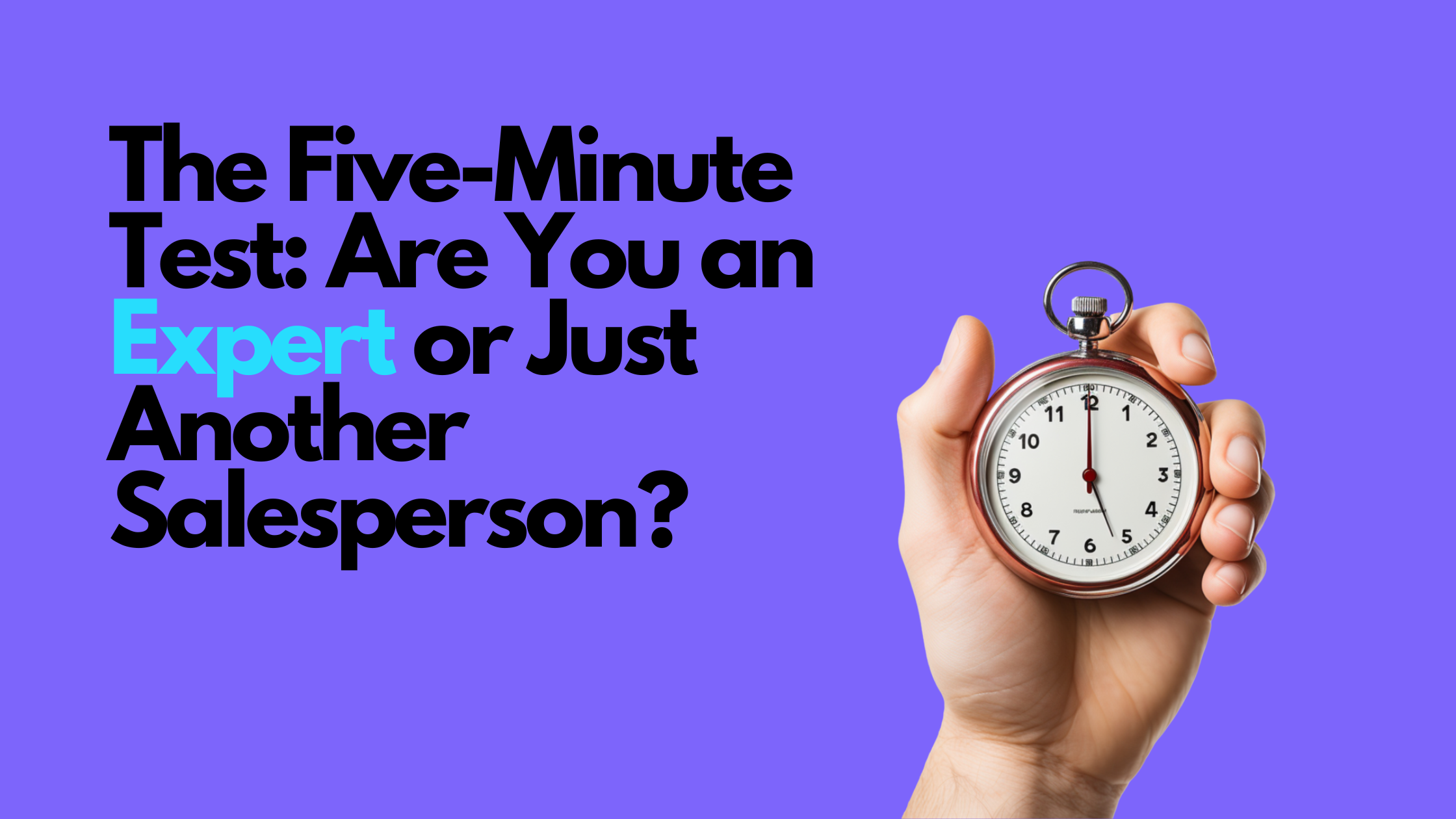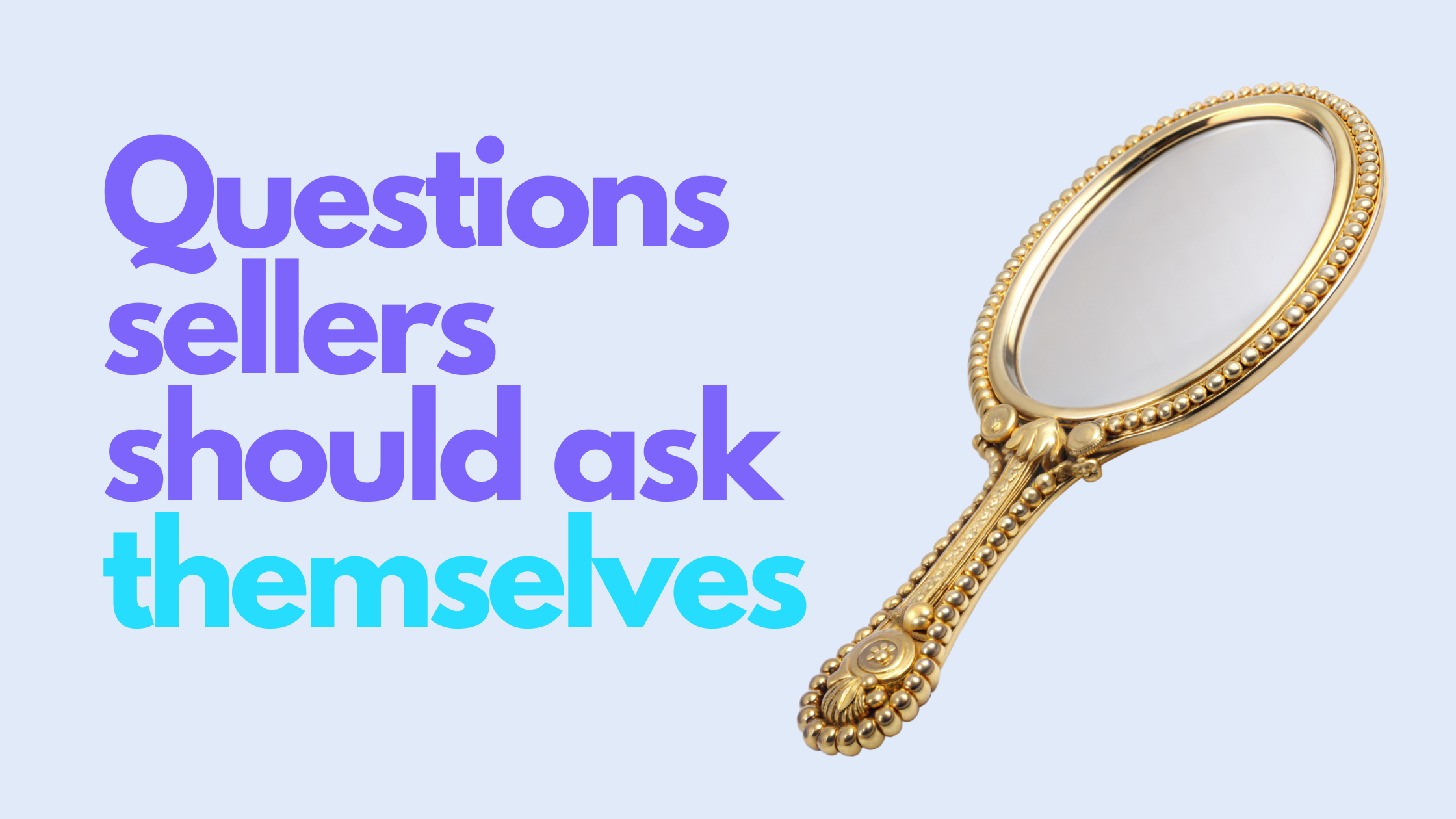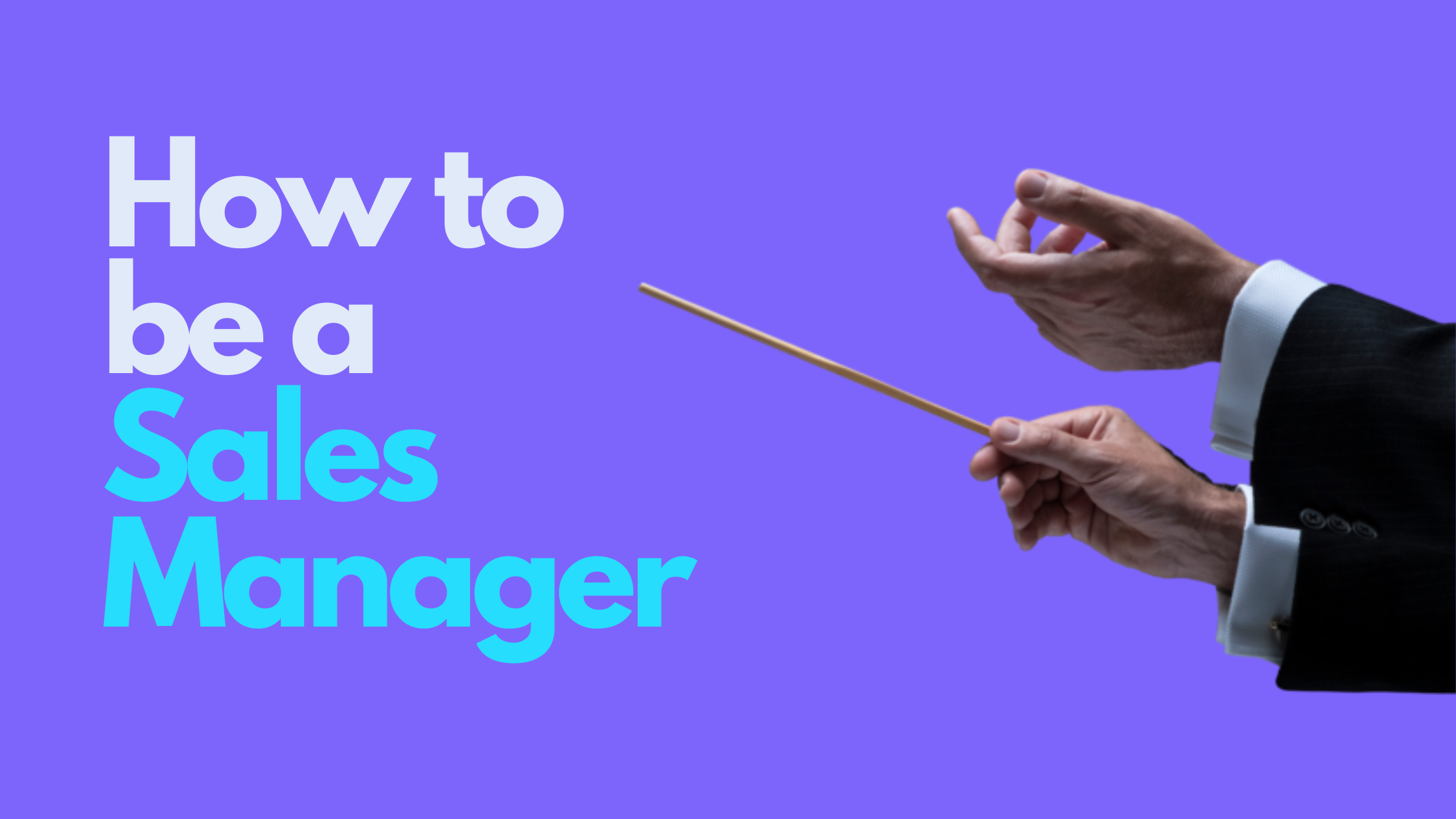Reading Time: 3 minutes
Subscribe
Get the latest Flow State content delivered to your inbox
You can unsubscribe at any time. Privacy Policy.
First impressions are not just important—they’re critical. For seasoned buyers, it often takes no more than five minutes to decide whether they’re dealing with a credible expert or just another salesperson. This distinction is stark, and its impact on the trajectory of your interaction—and even your career—cannot be overstated.
When buyers perceive you as an expert, the dynamic shifts. They lean in, engage deeply, and treat the conversation as a valuable exchange rather than a transactional encounter. Experts earn attention and respect; they’re asked questions that matter, invited into strategic discussions, and given the time needed to fully explore their solutions. Conversely, if you’re seen as “just another salesperson,” the energy changes. Buyers disengage. Answers become curt, conversations feel rushed, and interest fades. In some cases, they may simply disappear—leaving you chasing ghosts.
This isn’t a new phenomenon, but in modern selling it’s more pronounced than ever. Today’s buyers are highly informed, time-pressed, and intolerant of mediocrity. If you lack the depth of understanding, confidence, or genuine curiosity to bring them value, they’ll notice—and quickly move on.
Mastering the Critical First Five Minutes
1. Start with Meaningful Preparation
Walking into a meeting with surface-level knowledge is no longer acceptable. Buyers expect you to know more than the basics about their business, their market, and their unique challenges. Preparation involves more than skimming their website or LinkedIn profiles—it requires digging deeper. Look into:
- Industry Trends: What market dynamics are likely to influence their business in the short and long term? Are there disruptions, innovations, or shifts they should be aware of?
- Competitor Activity: What are their key rivals doing differently? How could this affect their strategy?
- Internal Priorities: Have they recently launched new initiatives, products, or campaigns that could indicate their focus areas?
This research forms the foundation for an opening that resonates and shows you’re genuinely invested in their success.
2. Frame the Agenda with Intent
An expert doesn’t wander into a conversation hoping it will go well—they shape it. The way you set the agenda for the discussion can immediately demonstrate that you’ve thought critically about their needs. Instead of asking vague questions like, “What’s keeping you up at night?”, offer a tailored agenda:
“I’ve noticed a few trends in your market that I think could impact your business. I’d love to share my perspective and hear how you’re navigating them. Then, we can explore whether there’s a fit for what I do.”
This approach positions you as someone who has something valuable to contribute, not just someone there to take up their time.
3. Lead with Insights, Not Sales Pitches
Buyers aren’t looking for a product rundown—they’re looking for ideas that challenge their thinking or help them see their problem in a new light. This is where expertise truly shines. Start by sharing an observation or insight that connects to their context:
“Many companies in your space are struggling with [specific challenge]. However, a few I’ve worked with are tackling it by [solution or perspective]. How does that compare to what you’re seeing internally?”
This approach does two things: it positions you as someone who understands their world and invites them to engage in a collaborative discussion rather than a one-sided pitch.
4. Questions That Spark Conversation
Generic questions signal laziness; thoughtful, tailored questions demonstrate genuine curiosity and a desire to understand. Avoid asking questions they’ve heard a hundred times before, like “What are your goals for the year?” Instead, dive deeper:
- “How are you adapting to [specific trend] in your industry?”
- “I saw that [competitor] recently launched [initiative]. How is that influencing your strategy?”
- “Where do you see the biggest bottleneck in achieving [specific business objective]?”
These kinds of questions shift the conversation to a deeper level, showing that you’re not just present—you’re engaged.
5. Master the Subtleties of Presence
Your tone, body language, and overall demeanour speak volumes. Are you calm, confident, and fully present? Buyers can sense hesitation, over-eagerness, or a lack of authenticity. Experts exude a quiet confidence that comes from knowing their subject matter and being comfortable in their role. Key areas to refine include:
- Body Language: Are you sitting comfortably yet attentively? Are your gestures natural, reinforcing your points without overwhelming them?
- Tone of Voice: Is your delivery steady, warm, and assured? Avoid speaking too quickly or hesitating mid-sentence.
- Active Listening: Are you truly absorbing what they’re saying—or just waiting for your turn to speak?
These small cues help build trust and set the stage for meaningful dialogue.
The Compounding Power of Curiosity
While expertise can be built through research and experience, curiosity is the accelerant that propels you to the next level. Buyers are drawn to people who are genuinely interested in their challenges and eager to help solve them. Authentic curiosity enables you to ask better questions, uncover deeper insights, and ultimately provide more value.
This curiosity-confidence loop is powerful: the more curious you are, the more you learn; the more you learn, the more competent you become; and the more competent you are, the more confident you appear. Buyers can feel this energy—and they’re naturally drawn to it.



